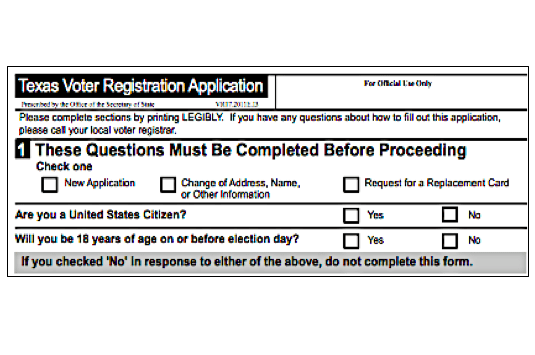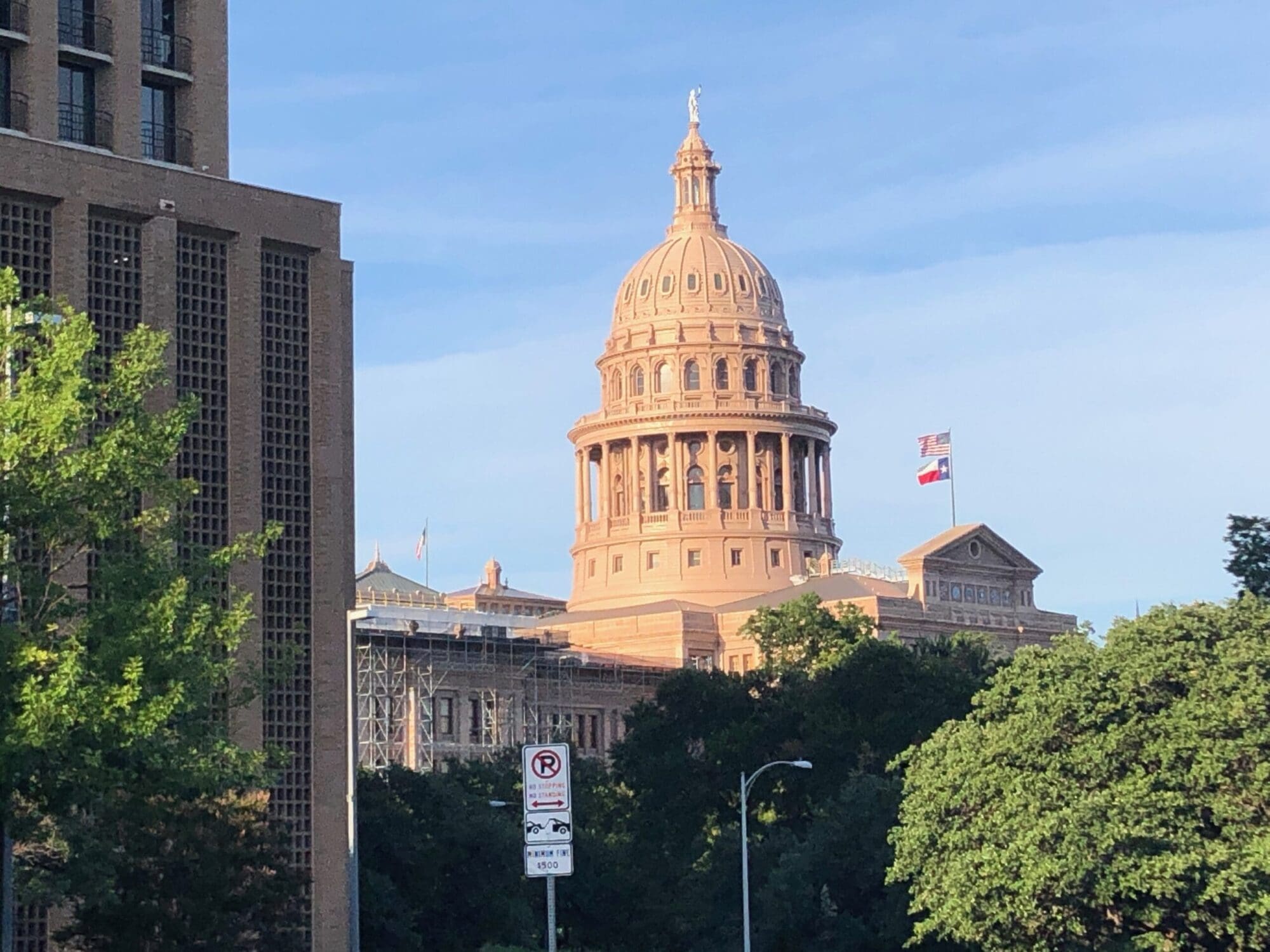An election integrity group is suing Texas’ most populous county to clean up its act after obtaining public records that show election officials are adding potentially ineligible people to local voter rolls—including applicants who state they are not U.S. citizens.
Public Interest Legal Foundation, an election integrity law firm that specializes in fighting to enforce voter list maintenance laws, filed a petition in state court Monday to compel Harris County Voter Registrar Ann Bennett to follow Texas election laws and reject insufficient voter applications.
Records obtained by PILF after a two-year legal fight show Harris County has been adding applicants to the county’s voter registration list who failed to answer the citizenship question—and worse, those who answered “No” to the question “Are you a United States citizen?”—even though Texas law requires voter registrars to reject those applications.
“When someone is telling you upfront that they aren’t a citizen, don’t register them,” PILF’s Communications and Research Director Logan Churchwell told Texas Scorecard.
Only U.S. citizens are allowed to vote in Texas elections, and it’s a violation of both state and federal law for noncitizens to vote or register to vote. But in Texas and elsewhere, registering to vote requires no documentation to verify citizenship—applicants merely check a box affirming they’re U.S. citizens.
That attestation, signed under penalty of perjury, is the only verification that a prospective voter is an eligible citizen.
It’s also a violation of the Texas Election Code for local voter registration officials to add applicants to voter rolls who fail to answer “Yes” to the citizenship question.
PILF sued Harris County in 2018, after Bennett’s office refused the group access to the county’s voter registration records, which are public under a transparency provision of the National Voter Registration Act (NVRA), also known as the “Motor Voter” law.
Harris County has over 2.3 million registered voters—more than any other county in Texas and 15 percent of all voters in the state. PILF wanted to know how many of those voters are ineligible noncitizens and, more importantly, how foreigners were getting onto the county’s voter rolls.
In March, Harris County settled the lawsuit and agreed to release all records of noncitizen voters. PILF says Bennett still has not turned over all the records, but documents they’ve received show some noncitizens are getting on the voter rolls because Bennett “is not complying with her ministerial duty to reject insufficient applications.”
“When an applicant marks ‘NO’ to the citizenship question under penalty of perjury, but is registered to vote anyway, the resulting harm is significant. If in fact the applicant is not a United States citizen, registration alone can cause problems and delays during any subsequent naturalization process. If the registrant casts a vote—even if under the mistaken belief that she can—she may subject herself to severe penalties. Even one ineligible vote cast by accident cancels out the vote of another Texan.
“However, for purposes of this petition, it makes no difference whether the applicant is or is not a citizen of the United States. What matters is whether the applicant and Registrar Bennett have complied with the requirements of Texas law because ‘compliance with state election laws … is mandatory.’”
“This shows some of the stakes over the fight to automatically send election mail,” added Churchwell. “If you were to send these folks a ballot, that action can confuse them into thinking their vote is somehow legal, when, in fact, it could fast-track them for deportation.”
PILF petitioned Texas’ 14th Court of Appeals in Houston to compel Bennett to perform her duty, asking for an expedited review and a decision by October 12—the day before in-person early voting in the November general election begins in Texas.
It’s still unknown how many noncitizens who wrongly checked the “Yes” box may be on Texas voter rolls. But if local election officials aren’t even complying with the simple “checkbox” honor system mandated by the state’s voter registration laws, it falls to citizens and citizen-backed organizations concerned about election integrity to hold them accountable.





